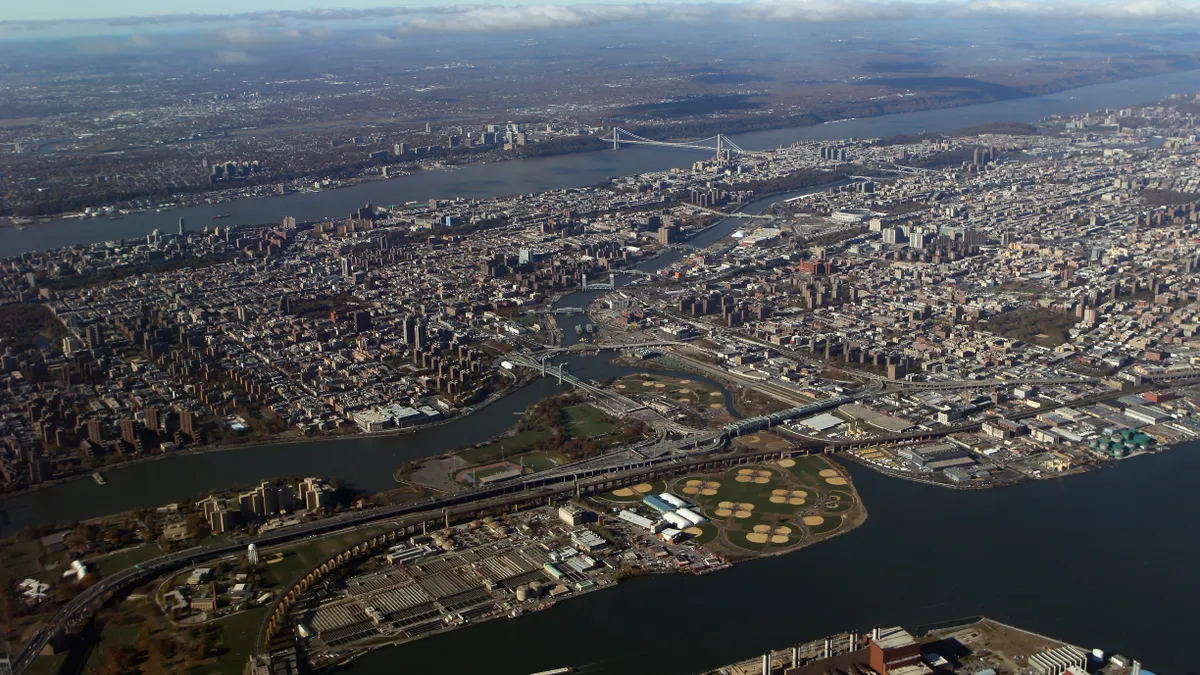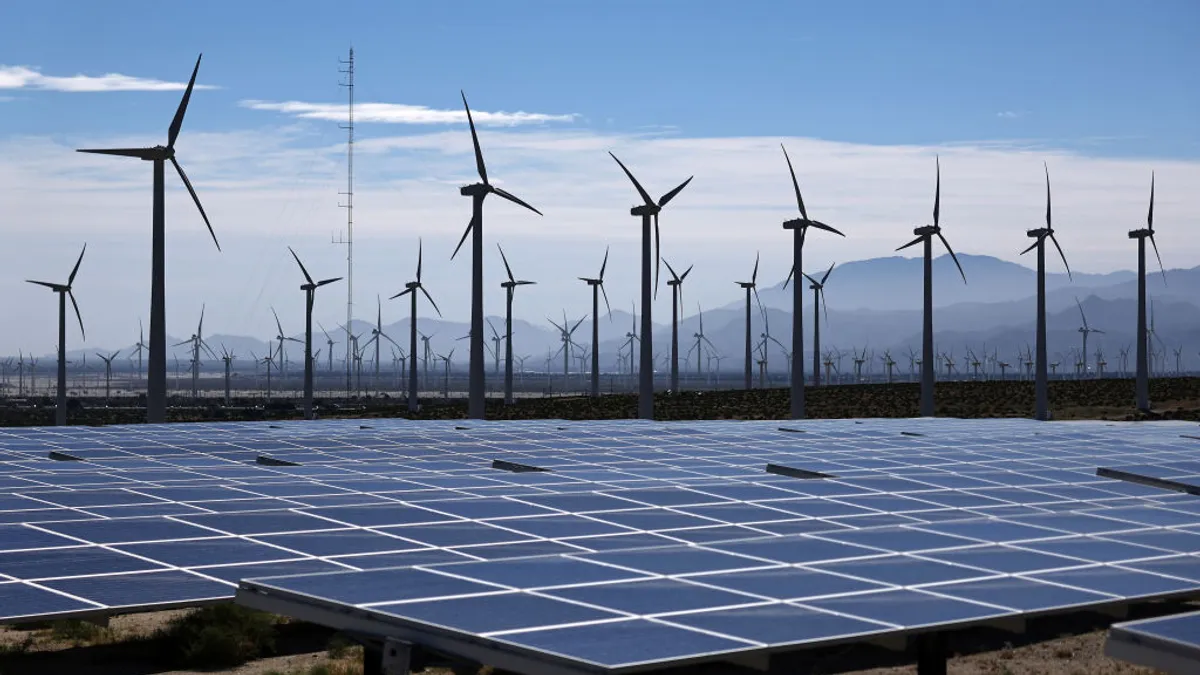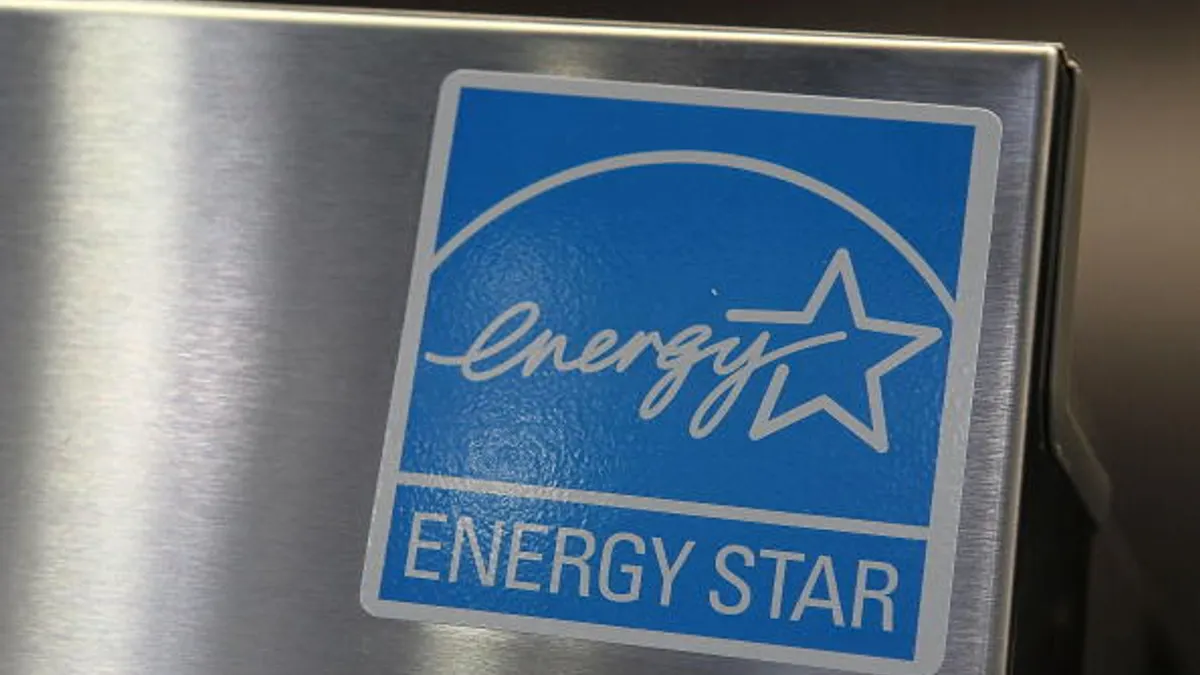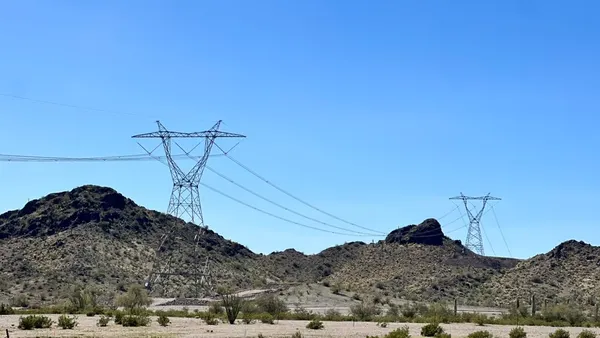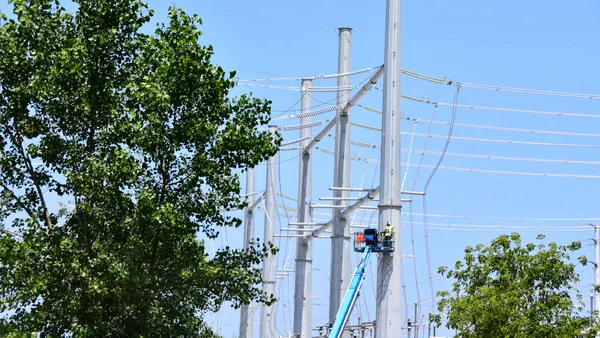Dive Brief:
- Con Edison and infrastructure company GI Energy are partnering on a unique demonstration project, installing a 1 MW battery storage project on a customer property on City Island in the Bronx. The project will deliver power to businesses along the commercial strip in the summer, relieving grid strain when temperatures rise.
- The project involved a lease agreement with the business, accommodating an agreement on the terms of location and battery operation guidelines.
- "This project simplifies the value proposition for customers," said Alex Trautner, section manager in Con Edison's Demonstration Projects group. "Rather than installing batteries for their end use behind the meter, these customers are simply providing land in these higher-value areas for front-of-meter battery installations, in exchange for a lease payment."
Dive Insight:
ConEd and GI Energy are planning four installations as part of the demonstration; this is the second battery system in the project, joining one deployed on the North Shore of Staten Island early last year.
As ConEd expands its renewable energy portfolio, increasing battery storage will be essential to ensure grid reliability. The utility is exploring more system platforms and hybrid models, like an integrated microgrid at the Hudson Yards development, as it contends with the energy transition.
But, Trautner explained, there is limited space for large storage projects and relatively few customers have conditions that can justify the up-front cost of a battery while also offering the location that a utility needs. This model, where the utility selects the location and guidelines for the battery in exchange for a lease payment (with no impact to the site's utility bills), "could help expand the universe of viable high-value locations for siting such front-of-the-meter projects."
"Particularly in our service territory, where land is a limited and finite resource, this is crucial to seeing widespread battery deployments," Trautner said in an email.
Danny Waggoner, who manages Advanced Energy Economy's regulatory work in New York, said third parties can install and be compensated for battery projects, but are limited by a lack of available data on the best project parameters. This model, Waggoner said, holds promise by correcting that "information asymmetry," although he added that state and local regulators could do more to streamline installation and approval.
New York state has a goal of reaching 70% renewable electricity by 2030 and has said it wants to reach 1,500 MW of storage by 2025 and 3,000 MW by 2030. ConEd partnered with 174 Power Global and announced in December a 100 MW battery in Astoria, Queens and has a 2 MW storage system in Ozone Park, Queens.
Dan McDevitt, chief operations officer of GI Energy, said the goal has always been to scale and commercialize this model and should show how other distributed storage developers can go to market in New York City.
"This project, being the first of its kind, forged a path with [the Department of Buildings] and [Fire Department of New York] on zoning and various permitting regulations," McDevitt said. "Put simply, we have laid a foundation for more efficient and timely deployment of energy storage in NYC."


